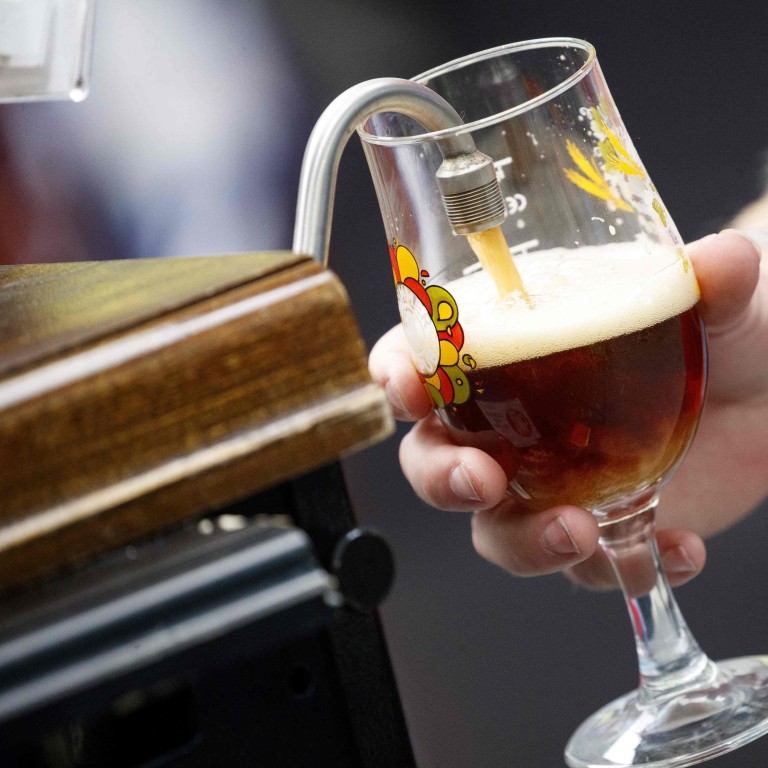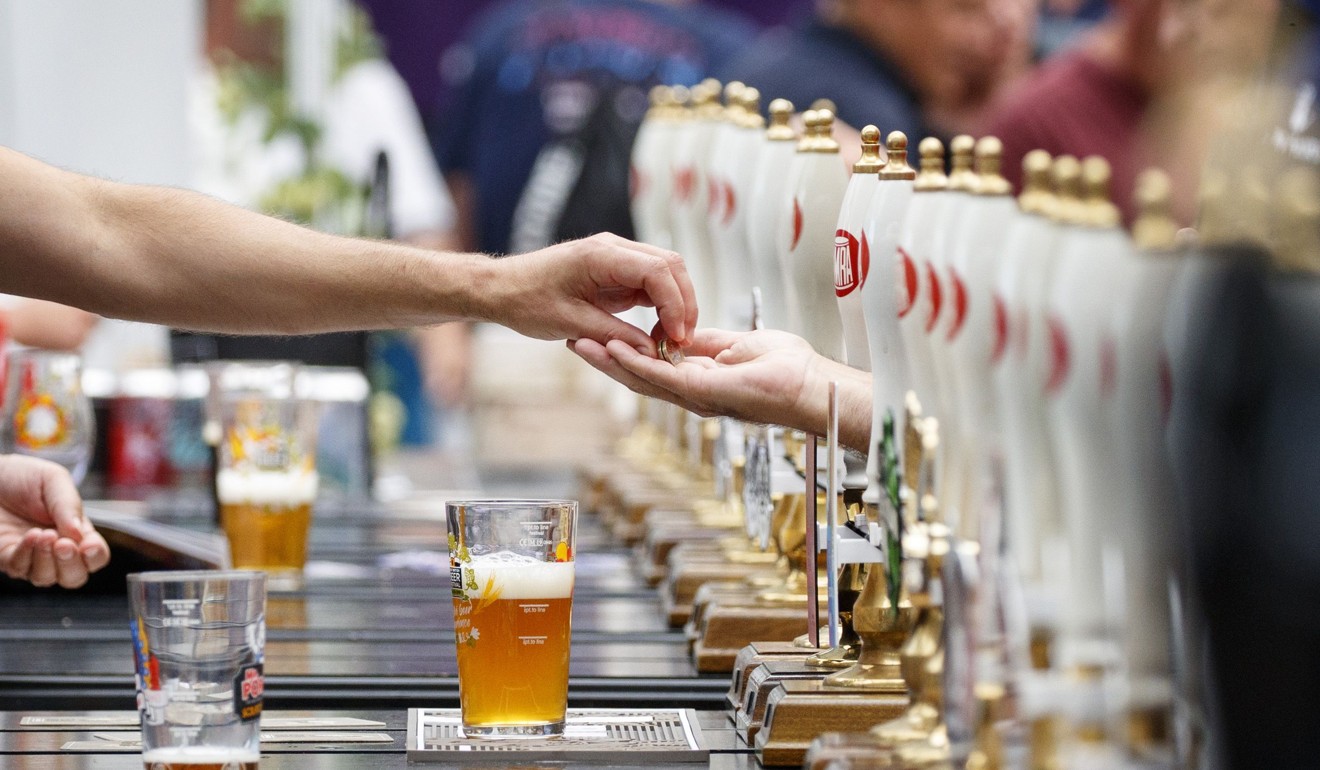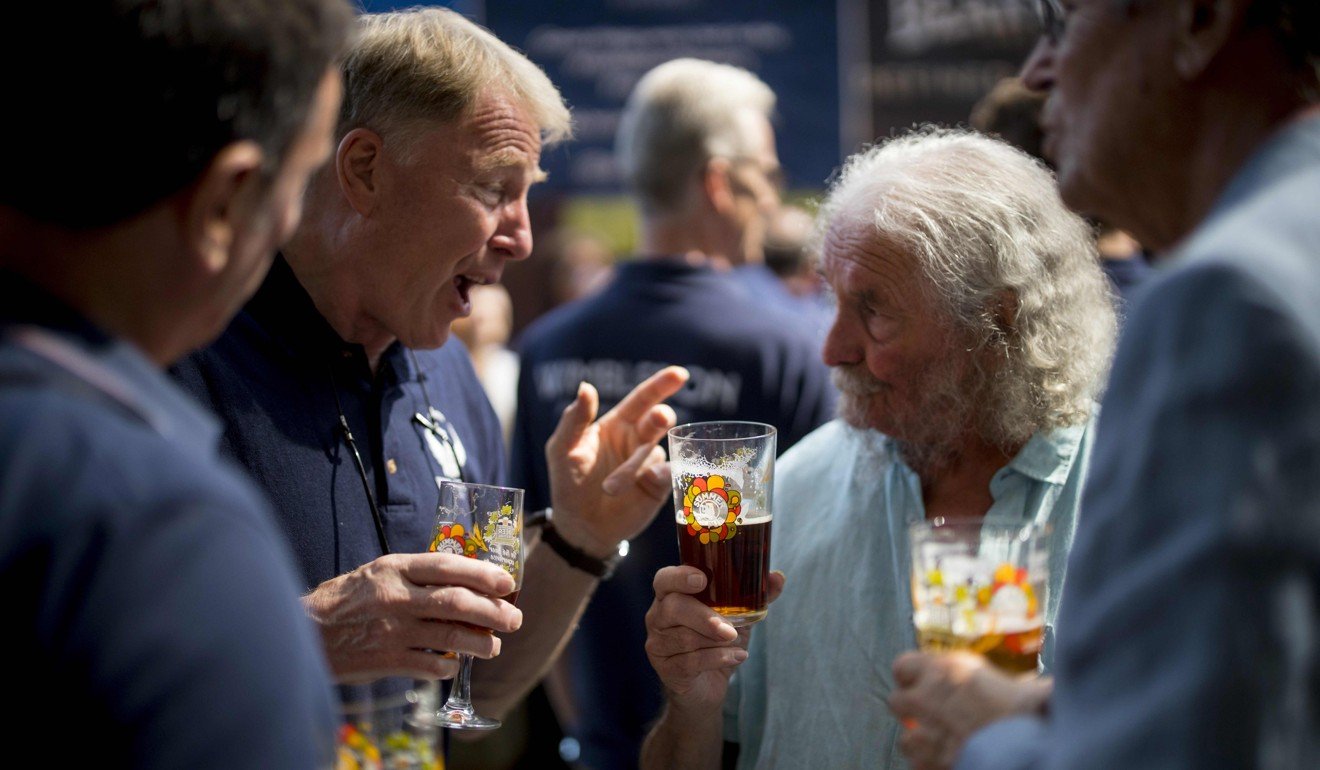
UK beer festival bans sexist drink names, bawdy imagery
- Drinks with crude stereotyping – such as Slack Alice, a cider described as ‘a little tart’ – have been banned from the event
- The move comes in the wake of the UK’s burgeoning #MeToo movement and a backlash against sexual harassment and abuse
Drinks that have fallen victim to crude stereotyping – such as Slack Alice, a cider described as “a little tart” – and pump clips featuring scantily clad, buxom women have been banned from this week’s event at London’s Olympia which is set to attract tens of thousands of visitors.
Hong Kong’s craft beer makers look overseas for new markets
The blanket ban goes a step further than a new code of conduct launched by the campaign group last year and is supported by a new survey which found that 68 per cent of female drinkers in the UK would be unlikely to buy a beer if they saw an advert for it using offensive “laddish” imagery.
The findings suggest British women are now actively boycotting products which reflect out of date and discriminatory attitudes and images associated with an industry traditionally dominated by men.

Camra’s move comes in the wake of the burgeoning #MeToo movement and a backlash against sexual harassment and abuse. It is the latest in the beer sector to help stamp out sexism and stop the alienation of a growing band of female beer drinkers, brewers, workers, sommeliers and writers.
Last year the Society of Independent Brewers drew up a new code of practice to outlaw marketing deemed to be sexist and offensive.
Abigail Newton, the vice-chair of Camra’s national executive, said: “Consumer organisations like Camra have an important role to play in making women feel more welcomed within the beer world. This is the first time we’ve made such a bold statement with a ban.
Six examples of sexism and gender stereotyping in modern ads
“It’s hard to understand why some brewers would actively choose to alienate the vast majority of their potential customers with material likely to only appeal to a tiny and shrinking percentage.
“We need to do more to encourage female beer drinkers, which are currently only 17 per cent of the population, despite the fact that they make up more than 50 per cent of the potential market. Beer is not a man’s drinks or a woman’s drink, it is a drink for everyone. There is a huge amount of work that needs to be done to overcome outdated stereotypes.”
This is misogyny and it becomes even more dangerous in an environment where men are likely to be drinking a lot
Social media groups such as Crafty Beer Girls and regular events such as the Fem. Ale festival in Norwich, an annual event aimed at the women who brew and drink craft ale, are helping to redress the balance. Similarly, Beers Without Beards will hold its biggest gathering yet in October, in Edinburgh.
“It’s great that Camra have gone on the record in support of women and against sexism in this way, but sad that it still needs to be done,” said beer sommelier Sophie Atherton. “I’m sure there’ll be the usual backlash – about women having no sense of humour and how it’s all a bit of fun – but that’s rubbish. This is misogyny and it becomes even more dangerous in an environment where men are likely to be drinking a lot. Women have as much right to enjoy a beer in peace as men do.”

Beer and food writer Melissa Cole said companies should be trying to attract more women to stem the tide of decreasing alcohol consumption and pubs closing at a rate of knots. “That means that imagery and advertising is at the frontline of attracting new drinkers,” she said. “Using retro images from the 1950s and saucy jokes is not the way to do it. The worst offenders are cider companies which are also causing offence with inappropriate messages about mental health.”
Laura Emson, a volunteer at this year’s Great British Beer Festival, said Camra should be congratulated for taking a strong stance. “Ten years ago I volunteered at the festival for the first time and was made to wear a T-shirt bearing the slogan ‘For a real mouthful fancy a gobble?’ I cried and wanted to go home. Things are better but there is still some way to go.”
Separately, a new campaign has been launched urging the UK government to help stop three pubs a day closing for good by cutting devastatingly high beer duty. New research for the Long Live the Local campaign suggests that the UK could lose one in 10 of its pubs over the next five years, with the loss of over 18,000 jobs. But cutting beer duty by just 2 per cent – the equivalent of 1p a pint – would keep those jobs safe.

